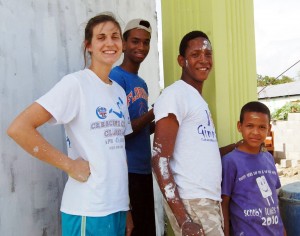Holiness in our Midst: Session 44
SESSION XLIV: ON THE LORD’S PRAYER
What line in the Lord’s Prayer speaks most clearly to you? Mine is, “Give us, this day, our daily bread.” Whenever I hear or am invited to join in the prayer, I remember a story.
In the 1970s and 1980s, I was a member of Fourth Presbyterian Church, situated right across from the Hancock Building in downtown Chicago. The pastor was the gracious and eloquent Dr. Elam Davis, who was written up in Time magazine in 1979 as one of the most influential preachers in the U.S. It was a privilege to hear his timely Gospel messages each Sunday, spoken from his heart without notes in a Welsh brogue. In a sermon series on the Lord’s Prayer, he shared about a little girl praying: “Give us this day, our daily breath.” Since that day, even aloud, I substitute the word “breath” for “bread,” because it reminds me that God is involved as prime mover and sustainer in the totality of my life.
STORY CIRCLE PROMPT: What line in the Lord’s Prayer sustains you? How? Why?
FOR PERSONAL/JOURNAL REFLECTION:
- Read the above reflection.
- Consider writing in your journal on the following topic: Examine the Lord’s Prayer, line by line, and its sustaining value in your life.
FOR GROUP STUDY:
- Read aloud Session XLIV.
2. Ask each person to answer the Story Circle Prompt.
Note: Holiness in Our Midst: Sharing Our Stories to Encourage and Heal is a monthly on-line feature created by Janis Pyle to facilitate sharing of our personal experiences, thoughts, beliefs, and spiritual practices with one another, especially through stories. Barriers are broken down when we begin to see all persons, even those with whom we disagree ideologically, as sacred and constantly attended to by a loving Creator. Each column is accompanied by a “story circle” prompt and study guides for personal and group reflection. To share your stories, contact Hannah Button-Harrison at communications@nplains.org. Janis Pyle can be reached at janispyle@yahoo.com.







